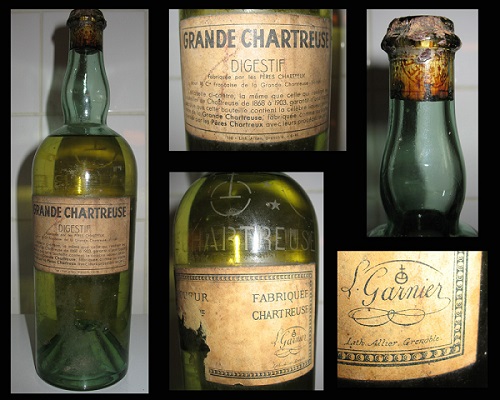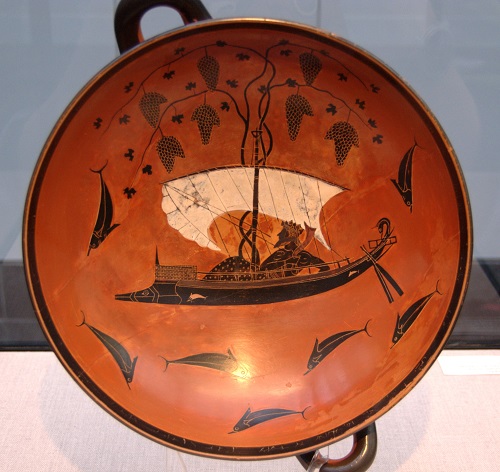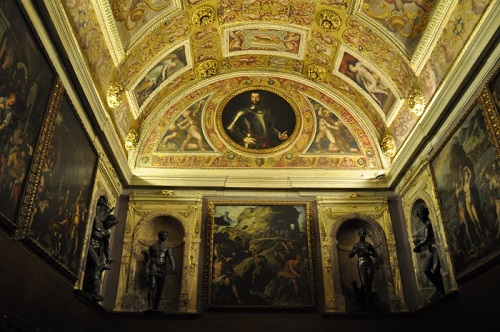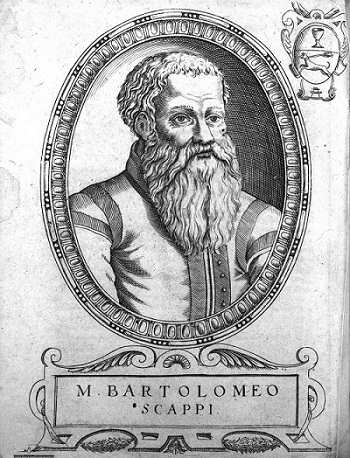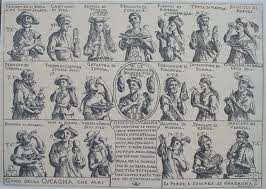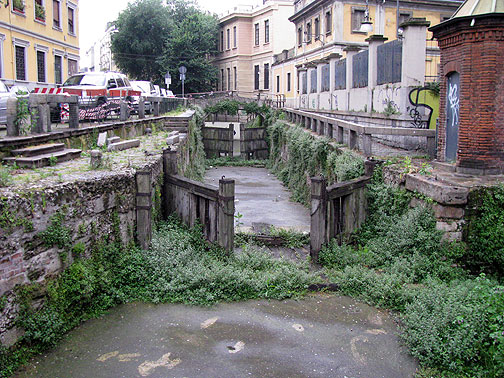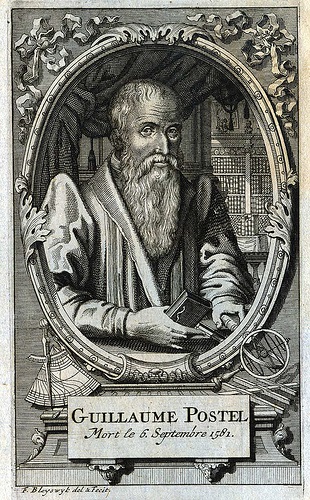
Born around 1510 in Barenton, a small village in the diocese of Avranches [Normandy], Guillaume Postel studied oriental languages at the college of Sainte-Barbe in Paris. Having become one of the foremost experts in his field he was appointed as Lecture royal to the French court of François I and made his journey to the East in 1537. His actual itinerary is unknown, but we do know that he visited Egypt and spent some time in Constantinople perfecting his knowledge of Eastern languages. It was on his return trip that he “discovered” Venice. Desiring to join the Jesuits, he then went to Rome, but he was soon expelled from the Order for his unorthodox religious ideas.
Having taken refuge in Venice, he remained there for two years (1547-48), and it was at that city’s Ospedaletto di SS Giovanni e Paolo that he met the holy woman Giovanna, whom he considered to be a new Messiah. He admired not only her great works of charity, but above all her extraordinary understanding of ancient Kabbalistic texts. Although she was barely literate, Postel claimed she could unveil the secrets of the Zohar, which the theologian was then translating into Latin. Endowed with supernatural powers, the woman could also see through solid objects and was able to live almost totally without food or drink.
According to Postel, Giovanna’s mission on Earth was to complete the work which Christ had begun. Through his sacrifice, the Son of God had freed men of Original Sin; now a new female Messiah would do the same for women. Thus, humanity would recover its original purity and the world would see an end to the religious wars that were tearing Europe apart. Peace and prosperity would reign, and humankind would enter an age of Universal Concord.
In 1555, Postel published two small works in Italian that summarised his views: Il Libro de la Divina Ordinatione and Prime Nove del altro mondo. These books were immediately added to the index of banned books, and when Postel applied to the Congregation of the Holy Office for an explanation, he was imprisoned. The Venice Inquisition then sent him before a tribunal in Rome, which judged him amens – that is, mad – so his death sentence was commuted to life imprisonment.
Following the death of Pope Paul IV in 1559, a popular uprising enabled Postel to escape. He returned to France, where an equally cruel fate awaited him. Due to the religious conflicts in Paris that were then spreading throughout the rest of the country, the king decided to confine the theologian to the monastery of Saint-Martin-des-Champs, where he died some twenty years later (1581).
Profoundly influenced by the Jewish Kabbalah, Postel’s ideas are very complex and his writing abound with so many metaphors that they are difficult to interpret. For example, when he speaks of Madre Giovanna as nourishing herself with a little water mixed with wine he is probably referring to the symbolic significance of these substances. Water, wheat and the colour of white are associated with the male principle, and wine, blood and the colour red with the female. Through nourishing herself physically – but primarily spiritually – with a mixture of the two, for the theologian, Giovanna symbolised the absolute perfection that results from the union of opposites, of the male and female principle.
There is a suggestion that Postel had some influence on Tintoretto and it is suggested that the figure with the long white beard in Tintoretto’s painting The Adoration of the Magi in the Scuola Grande Di San Rocco, Venice, is in fact Postel.
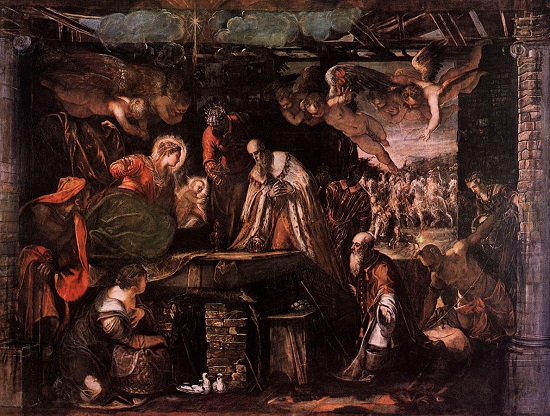
Whatever you make of the beliefs of Guillaume Postel, there is no doubt that he was a complex and intelligent man and his legacy arguably lives on in this 1582 painting by Tintoretto.
(Adapted from Secret Venice by Jonglez)

